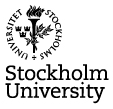Prof. Ong on Mangrove Ecosystem Management
Prof. J.E. Ong will on December 6, 2001, hold the seminar "Closing the Carbon Budget as a Means to Better Sustainable Mangrove Ecosystem Management".
Yet approximately half the world´s mangroves has been destroyed or degraded in the past 50 years or so. As background information, he will briefly describe the management system of the 40,000-hectare Matang mangroves (considered by many as one of the best managed mangroves for sustainable timber harvest) where some of the carbon budget studies were carried out.
Ong will then describe the long-term study to try to close the carbon budget of a mangrove ecosystem that was started in the mid-1970s.
He has been able to get some excellent estimates of the mangrove tree productivity. The more difficult part is the fate of the carbon fixed by the mangrove plants. How much of this is utilised by detritivores and microorganisms, sequestered into the sediments or exported to the surrounding coastal ecosystem?
Being able to quantify this would give us a better understanding of the role mangroves play in coastal fisheries as well as the role they play as global carbon sinks and help in the rational and better management the mangrove ecosystem.
About Prof. J.E. Ong
Prof. J.E. Ong works at Centre for Marine & Coastal Studies, Universiti Sains Malaysia, Penang.
Ong Jin Eong retired from Universiti Sains Malaysia (USM) just over 3 years ago but has stayed on as a Professorial Research Fellow. He graduated from the University of Melbourne and did his Ph.D. at the University of Tasmania.
From the mid-1970s until his retirement in 1999, he led the small but very active Mangrove Ecosystems Research Group at USM whose main long-term aim was to close the carbon and nutrient budgets of a mangrove ecosystem. This Group works across disciplines, collaborating with scientists around the world.
He is a life member of the Malaysian Nature Society and internationally he has been involved with a number of regional and international organisations, including being a member of the United Nations Joint Group of Experts on the Scientific Aspects of Marine Environmental Protection (GESAMP).
Time and place
Place: Room 126, Department of Systems Ecology, Frescati Backe
Vacancies | Contact | Environmental policy | Cookies
Stockholm Resilience Centre
Stockholm University, Kräftriket 2B | Phone: +46 8 674 70 70 | info@stockholmresilience.su.se
Organisation number: 202100-3062 | VAT No: SE202100306201


